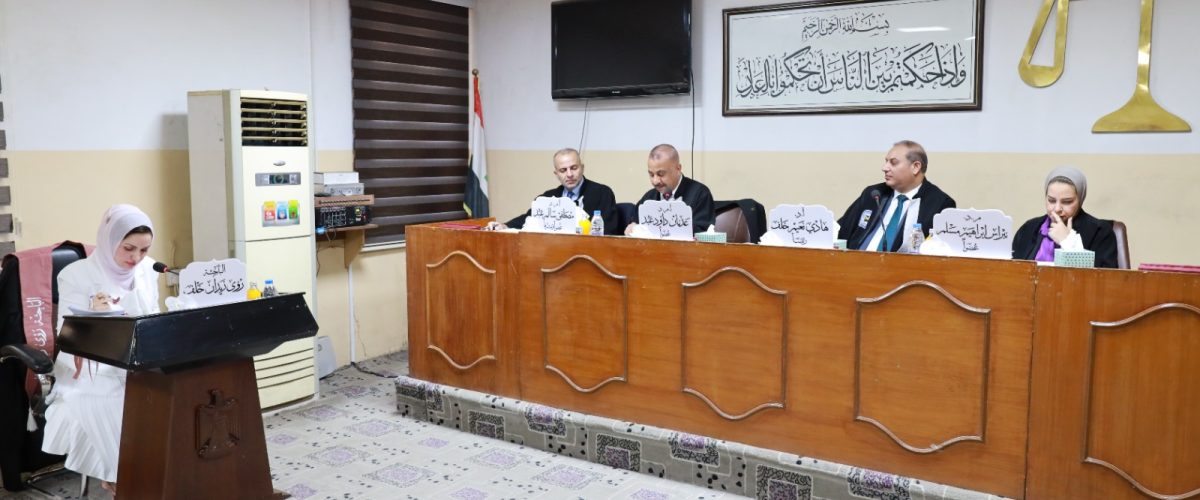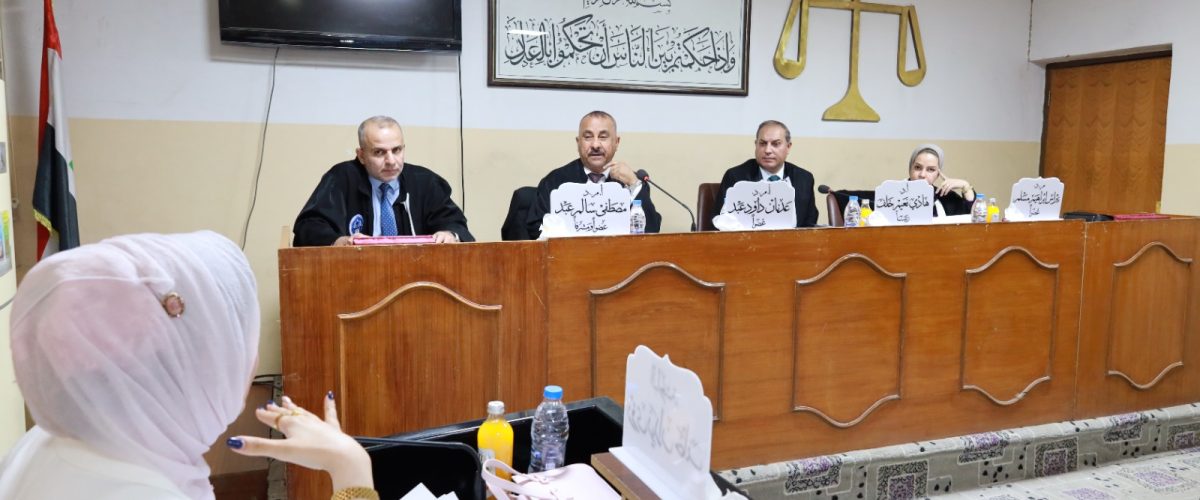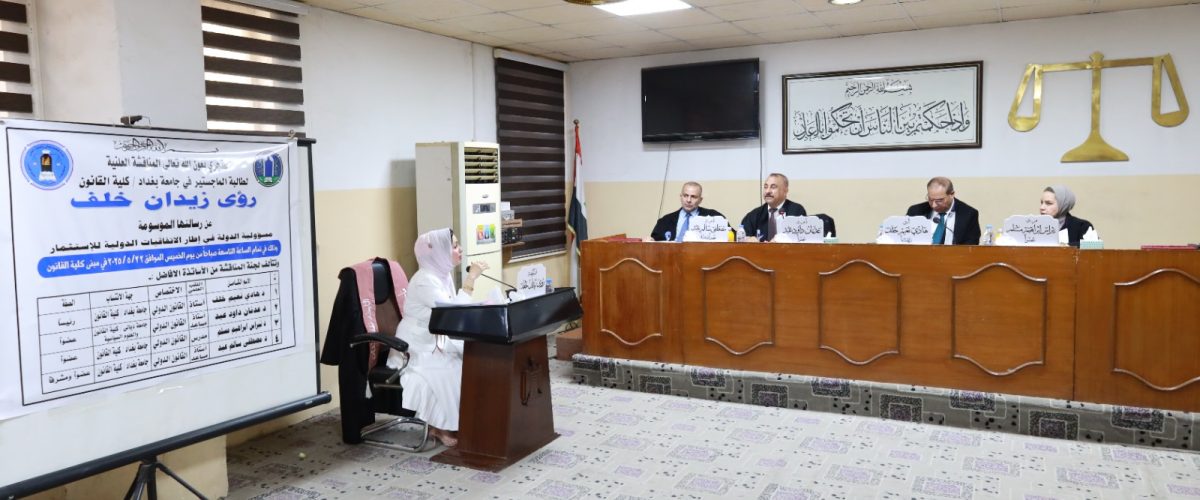College of Law – University of Baghdad Discusses Master’s Thesis on State Responsibility under International Investment Agreements On Thursday, May 22, 2025, the College of Law at the University of Baghdad held a defense session for a Master’s thesis titled “State Responsibility in the Framework of International Investment Agreements”, submitted by Ruaa Zidan Khalaf from the International Law. The session was held in the college’s Model Courtroom.
The examination committee included:
- Prof. Dr. Hadi Naeem Khalaf – Chairman
- Asst. Prof. Dr. Adnan Dawood Abdul – Member
- Lecturer Dr. Nebras Ibrahim Muslim – Member
- Asst. Prof. Dr. Mustafa Salem Abdul – Member and Supervisor
The thesis aimed to analyze the responsibility of states within the framework of international investment agreements, focusing on balancing state sovereignty with investment protection. It sought to clarify the limits of state responsibility and examine the legal framework governing this responsibility, with particular attention to challenges arising during the implementation of international obligations under state sovereignty.
The thesis was organized into three chapters:
- Chapter One: Definition and overview of international investment agreements
- Chapter Two: The legal regime of state responsibility under international investment agreements
- Chapter Three: Mechanisms for dispute resolution within the framework of international investment agreements
Key recommendations from the thesis included:
- Enhancing cooperation between states and investors in developing agreements: Investment agreements should include provisions ensuring a balance between investors’ rights and states’ rights to maintain sovereignty. This could involve creating continuous consultation mechanisms between parties before signing agreements to prevent potential disputes.
-
Establishing a “Specialized International Investment Court” for dispute resolution: The proposal includes developing an international court specialized in investment disputes, staffed by judges with expertise in investment and international economic law. This court would have jurisdiction beyond ordinary arbitration, promoting justice and directing resolutions toward the broader interests of the international community. Additionally, reforming the international arbitration system to be more transparent, independent, and fair is recommended.



